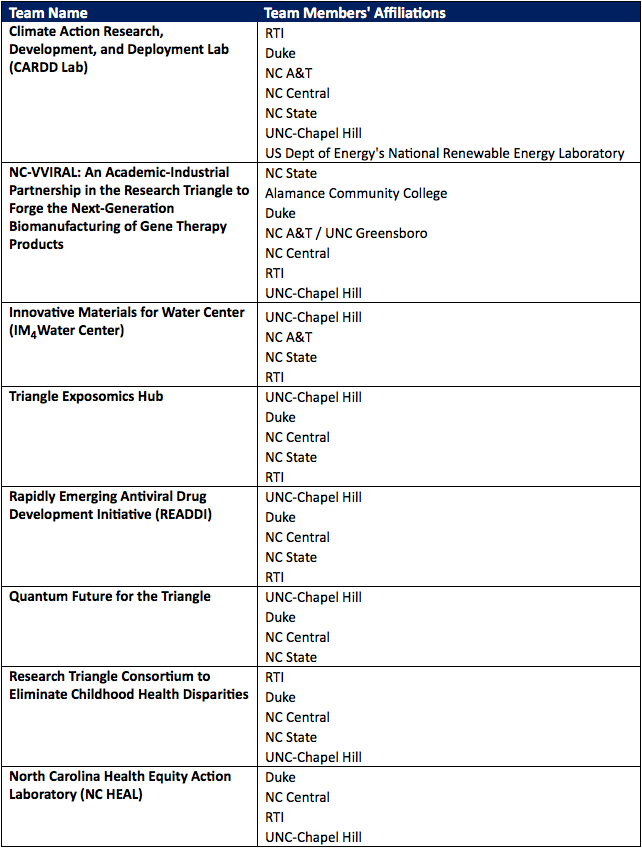RESEARCH TRIANGLE PARK (November 11, 2021) – As we struggle to emerge from one pandemic, RTI International is putting at least $5 million into an effort with researchers from four Triangle universities to confront the next one.
As part of its Forethought Research Collaboration Challenge, the nonprofit research institute RTI challenged researchers last spring to work with several North Carolina universities to develop bold proposals to attack critical issues. RTI committed $5 million in seed money.
Among 136 applicants, RTI settled last week on an effort already underway called the Rapidly Emerging Antiviral Drug Development Initiative (READDI), a collaboration led by UNC-Chapel Hill and co-founded by Nat Moorman, Ph.D., an associate professor of microbiology and immunology.
The effort includes researchers from UNC-Chapel Hill, Duke University, NC Central University, NC State University and RTI.
As we saw with the COVID-19 pandemic, the entire world struggled to combat the virus while awaiting development of effective vaccines. The idea with READDI is to create a broad spectrum of antiviral drugs that can effectively fight families of viruses in infected patients until a vaccine can be developed for a specific virus.
In an interview with Higher Ed Works, Moorman said the conventional approach with viral outbreaks has been to develop one drug for one bug.
“It’s sort of a rethinking of how we develop drugs for viruses that cause pandemics,” he said. “Instead of making one drug that targets one virus, we want to make one drug that targets an entire family of viruses.”
Such a drug could have helped combat SARS, MERS, and SARS-CoV-2 in their early stages. While we saw rapid development of vaccines for COVID-19, Moorman said, “It still takes time.”
The initiative aims to raise $500 million to develop five new broad-spectrum antiviral drugs in five years,1 which Moorman labeled “a stretch goal.”
“We don’t know what our window is,” he said. “We know the next virus is coming. We don’t know when. It’s a matter of when, not if.”
It will take real commitments from researchers and donors to prepare for the next outbreak, he said.
Dr. Christy Shaffer and Dr. Peter Lange, chair and vice-chair of RTI’s University Research Collaboration Committee, said in a joint statement that the goal of the Forethought challenge was to create new partnerships between the Triangle’s research institutions and spur new investment and growth.
“This proposal can achieve those aims and more, including having a global impact, which is why it stood out to the committee,” they said.
Dr. Jacqueline Olich, Vice President of University Collaborations at RTI, said she is excited to see how READDI uses the seed funding.
“The quality and quantity of proposals we received during this challenge was a reminder of why the Research Triangle region has been a model of world-class research for more than 60 years,” she said.
A list of the eight RTI Forethought finalists speaks to the collaboration the competition fostered:

To connect with the teams that developed the Forethought proposals, please contact Jacqueline M. Olich, PhD, Vice President, University Collaborations at RTI International: jolich@rti.org.

Leave a Reply